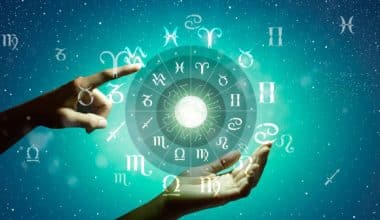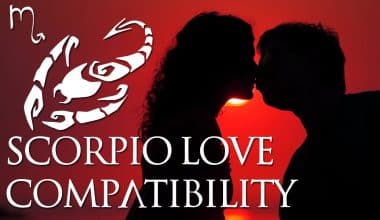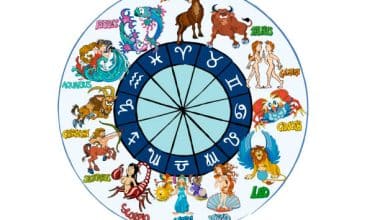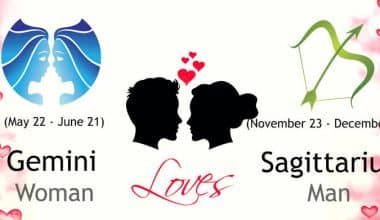Ever wondered why some relationships click instantly while others feel like trying to fit a square peg in a round hole? Compatibility is a driving force to the survival of most dating and marriage relationships.
Finding love is not always as arduous as finding the perfect pair. Unlike astrology, the MBTI compatibility test reveals the underlying preferences that make certain personalities mesh-like puzzle pieces, fostering understanding, respect, and shared values.
Understanding differences in personalities, complementary strengths, and how to manage weaknesses is the first step toward building a sustainable relationship. And MBTI compatibility test is designed to help you achieve that.
Discover how to find the right partner for you in dating and marriage relationships with the MBTI compatibility test in this article.
Table of contents
- What is the MBTI Compatibility Test?
- Is MBTI compatibility accurate?
- What are MBTI Personality Types? Explain the 16 personality types
- Myers-Briggs Type Indicator (MBTI) 16 Personality Types
- #1. INTP: The Logician
- #2. INTJ: The Architect
- #3. ENTJ: The Commander
- #4. ENTP: The Debater
- #5. INFJ: The Advocate
- #6. INFP: The Mediator
- #7. ENFJ: The Protagonist
- #8. ENFP: The Campaigner
- #9. ISTJ: The Logistician
- #10. ISFJ: The Defender
- #11. ESTJ: The Executive
- #12. ESFJ: The Consul
- # 13. ISTP: The Virtuoso
- #14. ISFP: The Artist
- #15. ESTP: The Enterpreneur
- #16. ESFP: The Entertainer
- Which MBTI are best together?
- What MBTI is compatible with ENFJ?
- What is the MBTI compatibility chart?
- Which Myers Briggs types are incompatible?
- What is the golden pair in MBTI?
- Frequently Asked Questions
- Conclusion
- References
- Recommendations
What is the MBTI Compatibility Test?
The MBTI Compatibility Test isn’t a single, standardized test but rather an approach to understanding relationship potential based on the Myers-Briggs Type Indicator (MBTI).
The Myers-Briggs Type Indicator (MBTI) aims to analyze how well your personality type might mesh with another person’s.
To achieve this, it uses the four core preferences of the MBTI (Introversion/Extroversion, Sensing/Intuition, Thinking/Feeling, Judging/Perceiving) to analyze how different personality types might interact and complement each other in a relationship.
This compatibility test helps you understand your needs and preferences in a partner as well as decode your partner’s communication style for better understanding.
Read Also: Cancer and Sagittarius Compatibility: Are They a Good Match in Sex, Love, and Life
Is MBTI compatibility accurate?
The MBTI compatibility test is designed to provide valuable insights into both your own and your partner’s needs, preferences, and communication styles.
Unlike astrology, MBTI delves deeper than just sun signs, analyzing four distinct preferences that influence how you interact with the world.
Its accuracy is based on a scientific basis. Research suggests that couples with similar or complementary preferences in specific areas, like decision-making or communication styles, tend to report higher relationship satisfaction.
Hence, it is assumed that complementary partners will make better pairs than a duo with opposing penalties
However, there is so much more than personalities that make relationships thrive. So, MBTI compatibility is not a guarantee of success. Shared values, emotional intelligence, and healthy communication are crucial for a thriving relationship, regardless of MBTI type.
Read Also: ENFJ Compatibility Test: Guide in Dating, Love, and Relationships
What are MBTI Personality Types? Explain the 16 personality types
As earlier stated, the Myers-Briggs Type Indicator (MBTI) identifies 16 personality types based on four preferences. .
1. Introversion (I) vs. Extraversion (E):
- Introverts: Gain energy from spending time alone and need to recharge after social interaction.
- Extraverts: Draw energy from being around others and thrive on social interaction.
2. Intuition (N) vs. Sensing (S):
- Intuitives: Focus on future possibilities, abstract ideas, and theoretical concepts.
- Sensors: Focus on concrete details, practical considerations, and the present moment.
3. Feeling (F) vs. Thinking (T):
- Feelers: Make decisions based on personal values, emotions, and empathy.
- Thinkers: Make decisions based on logic, objectivity, and rational analysis.
4. Judging (J) vs. Perceiving (P):
- Judgers: Prefer structure, routine, and planning. They like to have things decided and organized.
- Perceivers: Embrace flexibility, spontaneity, and open-mindedness. They prefer to keep their options open and adapt to circumstances.
Read Also: ISTP Compatibility Test: Guide in Dating, Love, and Relationships
Myers-Briggs Type Indicator (MBTI) 16 Personality Types
The four preferences above combine to create unique personality types
Analysts (NT)
#1. INTP: The Logician
A Logician, or an INTP personality, is strategic, independent, and a visionary who prides themselves on their unique perspectives and vigorous intellect.
As introverts, Logicians value their alone time, but that doesn’t mean they don’t desire companionship. For individuals with this personality type, the ideal romantic partner is not just someone to spend time with, but someone who can challenge their ideas and views as an equal. Logicians seek a partner who shares their passion for learning and growth and who can actively encourage and support them in this pursuit.
#2. INTJ: The Architect
Architects (INTJs) approach romantic relationships strategically, always seeking knowledge and using clear-cut goals and plans to achieve them.
Individuals with the Architect personality type often face a unique challenge when it comes to finding a suitable partner. These individuals are not easily content with the status quo, and they tend to envision a better world than the one that exists currently. This same mindset often influences their approach to romantic relationships as well.
#3. ENTJ: The Commander
A Commander, or an ENTJ, is a person with the Extraverted, Intuitive, Thinking, and Judging personality traits. They are decisive, ambitious, natural leaders who thrive on momentum and accomplishment.
Individuals with the Commander personality type are natural leaders. They possess the qualities of charisma and confidence and have the ability to inspire others towards a common goal.
However, they are also known for their strong rationality, often pursuing their objectives with an unrelenting drive, determination, and sharp intellect. This can sometimes lead them to be perceived as ruthless in their pursuit of success.
#4. ENTP: The Debater
Debaters are quick-witted and audacious. They are not afraid to challenge the status quo, or anyone or anything. They are clever, adaptable, and always ready for a challenge.
Debaters boldly challenge their partners’ limits in pursuit of their potential, breaking boundaries and traditions. They demand open-mindedness and spontaneity, right from the start.
Dating a Debater is a thrilling and stimulating experience, as they passionately use their creativity and enthusiasm to surprise and delight their partners with novel ideas and experiences.
Diplomats (NF)
#5. INFJ: The Advocate
Advocates, also known as INFJs, are considered to be the rarest personality type. However, they make a significant impact on the world. These individuals are principled and idealistic and do not settle for a mundane life.
They strive to make a difference and want to be a driving force for good in the world. Advocates do not measure success based on wealth or status but rather on seeking fulfillment, helping others, and making a positive impact.
INFJ Advocates seek meaningful and deep relationships, including romance. They have high standards and can be picky, but it’s because they’re looking for true love. Their active imagination helps them find a compatible match, even if it takes time. They are usually idealistic, empathetic, and driven to make a difference.
#6. INFP: The Mediator
Mediators (INFPs) may appear reserved at first glance, but in reality, they possess incredibly vibrant and passionate inner lives. They have an unparalleled imagination and creativity, often losing themselves in daydreams where they invent fascinating stories and conversations.
These personalities are known for their exceptional sensitivity, which allows them to have profound emotional responses to music, art, nature, and the people around them.
They are dreamers and idealists when it comes to romance. They believe in true love and never settle for less. Creative, compassionate, and always seeking meaning, Mediators approach romance with high expectations.
#7. ENFJ: The Protagonist
ENFJs have a clear sense of purpose – to serve others and the world. They are thoughtful, idealistic, and relentlessly pursue making a positive impact.
Individuals with this personality type exhibit tremendous courage and determination when it comes to fulfilling their responsibilities, even in the face of adversity. They are highly inspiring, charismatic, and driven by their values and beliefs.
In matters of love, Protagonists (ENFJs) display an intense passion and unwavering commitment to their ideals and principles. Their high standards extend to every aspect of their life, including their romantic relationships, where they refuse to settle for less than what they deem to be the best.
#8. ENFP: The Campaigner
ENFPs, also known as Campaigners, are confident free spirits who stand out in any crowd. They possess an outgoing, openhearted, and open-minded nature that radiates positivity. Their enthusiasm for life is infectious, making them the life of the party.
However, it’s important to note that they are not solely focused on having a good time, as they are genuinely passionate about various aspects of life.
Campaigners are confident and adventurous individuals who are always eager to take on new challenges. Their enthusiastic and optimistic nature is infectious and inspires those around them. They have a strong desire to share their life with someone special and are not content to be single for too long.
While their dedication to relationships is admirable, Campaigners should be careful not to invest too much of their self-worth in their relationship status. They must be aware that their true value comes from within and as such, they do not let their relationship status define them.
Sentinels (SJ)
#9. ISTJ: The Logistician
Logisticians (ISTJs) are introverted, observant, thinking, and judging individuals. They are reliable, organized, and detail-oriented with a rational outlook on life.
Logisticians exude confidence in their integrity and take pride in their ability to follow through on their commitments.
Logisticians value traditional family structures and roles. They avoid blind dates and hookups and prefer stable ways of finding partners. Clubs and unpredictable situations make them uncomfortable.
#10. ISFJ: The Defender
In their modest, unassuming way, Defenders play a crucial role in society. They are diligent, conscientious, and deeply committed to the well-being of others.
Defenders are dependable, loyal, and practical. They remember important occasions, uphold traditions, and show their loved ones care and support.
Defenders, despite their seemingly calm and unassuming demeanor, have a passionate and loyal side that may not be readily apparent. In romantic relationships, this personality type is known to exhibit intense feelings, particularly a strong desire to protect and care for their partner. Even Defenders themselves may be taken aback by the depth of their emotions at times.
#11. ESTJ: The Executive
Executives are individuals who uphold tradition and order. They possess a strong sense of ethics and social norms, which they use to unite families and communities.
Those with the Executive personality type are highly respected for their honest, dedicated, and dignified approach to life. They are known for providing clear guidance and advice and are willing to take on challenging paths as leaders.
Executives value honesty and consistency in relationships. They remain true to their identity and goals throughout the various stages of a relationship. If their partner can reciprocate and maintain honesty and stability, then their relationship is likely to be very stable.
Efficient, decisive, and natural organizers.
#12. ESFJ: The Consul
A Consul, or ESFJ, possesses a powerful combination of personality traits that include being Extraverted, Observant, Feeling, and Judging. They are known for their practicality, resourcefulness, and fearlessness when it comes to taking on new challenges.
Consuls thrive when surrounded by people, and their ability to connect with others makes them the backbone of many communities. They are generous hosts, welcoming friends, loved ones, and neighbors into their homes and their hearts.
Consuls highly prioritize romantic relationships because they offer unparalleled levels of support, devotion, and feelings of security and stability, which are extremely comforting for them.
These personalities take their relationships seriously. They focus on meeting mutual needs, building mutual respect, and supporting each other’s goals and opinions.
Explorers (SP)
#13. ISTP: The Virtuoso
Individuals with the Virtuoso personality type are known for their love of exploration, using their hands and eyes to touch and examine the world around them with both rationality and curiosity.
They possess a natural inclination towards creating and building and are often seen moving from one project to another, building things that are both useful and not-so-useful simply for the joy of it. They learn from their surroundings as they go, and are always eager to discover new things.
Virtuosos (ISTP) are independent and goal-driven individuals due to their Introverted, Observant, Thinking, and Prospecting personality traits.
Virtuosos are spontaneous and always seeking new experiences in early dating. They need a lot of personal space and will leave if their partner doesn’t meet their expectations. Don’t try to control them or schedule their activities, or they’ll leave even sooner.
#14. ISFP: The Artist
Adventurers express their creativity in unique ways, using life as a canvas. They are independent, creative, and in touch with their emotions, showcasing their true selves through their appearance and free-time activities.
Adventurers are emotional individuals, but they tend to keep their feelings to themselves and focus on their partners instead of trying to control the mood of a situation with their own emotions. If accepted for who they are, Adventurers can be warm and enthusiastic partners.
As Adventurers build stronger relationships, their partners come to expect vibrancy and spontaneity. Adventurers are not known for their long-term planning skills, preferring to let their partners take charge in terms of logic and strategy. However, they excel in the present and always have plenty of things to do.
#15. ESTP: The Enterpreneur
Entrepreneurs often create a buzz at parties as people flock around them. Entrepreneurial personalities love to entertain and be the center of attention with their blunt and earthy humor. They possess an energetic, adaptable, and adventurous nature.
Entrepreneurs tend to lose interest quickly in discussions about abstract concepts, theories, and global issues and their implications. They prefer to keep their conversations lively and filled with intelligence, but they would rather talk about what is happening in the world or, even better, take action and just do it.
ESTPs are not focused on their wedding day in romantic relationships. They enjoy the present and are skilled at creating surprises. They do not plan for the future, but their enthusiasm and unpredictability make them exciting dating partners.
#16. ESFP: The Entertainer
ESFPs are outgoing, curious people who enjoy discovering the unknown. They’re spontaneous, enthusiastic, and the life of the party. They are spontaneous, generous, and have an irresistible style of encouraging others. No other personality type can match their ability to make others feel the same level of excitement.
Entertainers are social, fun-loving individuals who enjoy living in the moment and find joy in everything they do, including their romantic relationships. For them, relationships are unpredictable and exciting experiences that should be cherished.
Well, when the enjoyment fades away, it disappears completely. Entertainers consistently reassess their situations and commitments, irrespective of any expressions of love and commitment made earlier.
If they no longer feel the same way just a week later, they have no qualms about considering breaking things off.”
Which MBTI are best together?
As a rule of thumb, some personalities types tend to blend better with others. Especially, if they have complementary strength.
According to the MBTI compatibility chart, ENFJs offer extroverted leadership and emotional support, while INFPs bring introverted creativity and idealism, creating a balanced and supportive dynamic.
INTJs provide strategic planning and logical thinking, while ENFPs offer enthusiasm and adaptability, leading to a dynamic partnership that thrives on innovation and exploration.
On the flip side, ISTJ and ESTJ are similar pairs. Both value order, efficiency, and practical solutions, leading to a well-organized and reliable partnership.
Read Also: 4488 Angel Number Meaning: Meaning in Love, Money, Twin Flames, & Languages
What MBTI is compatible with ENFJ?
Known for their warmth, idealism, and thoughtful charisma, ENFJ’s often seek partners who share their values and can complement their strengths.
They are highly compatible with INFP and ISFJ. INFPs share ENFJs’ idealism and passion for making a difference, offering a deep emotional connection and creative inspiration.
Also, ISFJs provide the kind of practical support and loyalty that ENFJs appreciate, creating a stable and harmonious partnership.
They tend to be compatible with INFJs, too. INFJs share ENFJs’ intuitive nature and concern for others, leading to a deeply empathetic and understanding partnership.
What is the MBTI compatibility chart?
MBTI compatibility charts are visual representations of how different MBTI types might interact and complement each other in a relationship.
They typically depict the 16 types in a square grid, with lines connecting types that are considered “compatible.”
While MBTI compatibility charts offers a starting point for exploring compatibility based on shared or complementary preferences, its reducing complex personalities to 16 types is an inherent limitation.

Which Myers Briggs types are incompatible?
Due to personality differences, certain pairings might present inherent challenges due to potential clashes in preferences and communication styles.
In the MBTI chart, Thinkers (T) vs. Feelers (F) have conflicting values. So, when decision-making approaches are fundamentally different, it can lead to misunderstandings and frustration.
For example, a T might prioritize logic and objectivity, while an F might prioritize emotions and empathy, leading to conflicting priorities in important decisions.
Also, Introverts (I) and Extroverts (E) preferences for social interaction and energy levels can clash. An I may find an E’s constant social engagement draining, while an E might find an I’s need for solitude isolating.
What is the golden pair in MBTI?
In the MBTI chart, the term “golden pair” refers to a specific pairing of personalities considered by some to be exceptionally compatible and harmonious. The most commonly cited golden pair is the INTP-INFJ combination.
This is because both types share same strengths. For instance, they both value deep conversations, abstract thinking, and exploring complex ideas. Their intellectual pursuits and mutual respect for each other’s minds can foster a strong bond.
While they appear to be the golden pair, they are likely to have communication challenges. INTPs tend to be more direct and blunt, while INFJs may prioritize tact and diplomacy.
To take the MBTI compatibility test online, click here.
Frequently Asked Questions
ESTJ, ENTJ, ESFJ, ENFJ, ISTJ, ISFJ, INTJ, INFJ, ESTP, ESFP, ENTP, ENFP, ISTP, ISFP, INTP & INFP.
Warm, charismatic, and passionate, ENFJs are skilled at expressing their affection and making their partners feel special.
INFJs are the most likely to remain single for the following reasons: They are introverts, extremely private and independent.
Age, level of self-awareness, and purpose for taking the test determines how often you should take the test. Retest at least one every three years.
While not a definitive science, the MBTI has been extensively researched and validated, making it a reliable tool for self-exploration.
Conclusion
The MBTI test is a compass that reveals your innate personality traits. You should use the MBTI test as a tool for self-discovery, not a crystal ball for predicting the future.
This article explains the 16 combination of personality traits on the MBTI compatibility chart. Discover more about yourself when you take MBTI test.
References
- Dreams Around the World – Simplified Myers Briggs Type Compatibility Chart
- Psychcentral.com – Personality Types and Romantic Compatibility: How Does It Work?
- Truity.com- PERSONALITY TYPE INTERACTIONS & COMPATIBILITY
Recommendations
- Gemini and Cancer Compatibility: Are They a Good Match in Sex, Love, and Life
- Scorpio Compatibility: Everything You Need To Know
- Capricorn And Capricorn Compatibility: Are They a Good Match in Sex, Love, and Life
- Scorpio and Sagittarius Compatibility: Are They a Good Match in Sex, Love and Life
- Libra And Scorpio Compatibility: Are They a Good Match in Sex, Love, and Life





